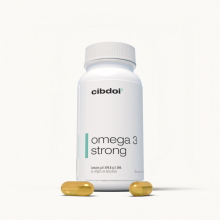Does Fish Oil Remove Fat From the Liver?
Published:
A fatty liver is a potentially serious condition where excess fat builds up in liver cells. This fat accumulation causes inflammation and impairs liver function over time. The good news is that fish oil may help reverse a fatty liver by mobilizing and removing excess fat from the organ. Thanks to its anti-inflammatory and fat-targeting effects, fish oil shows promise as an adjunct fatty liver therapy when combined with lifestyle changes. But what does the research say? Let’s objectively examine the evidence.
Contents:

What Causes Fatty Liver?
Before analyzing fish oil, it’s helpful to understand what causes a fatty liver in the first place:
- Obesity – Excess visceral fat and adipose tissue.
- Poor diet – High sugar intake drives liver fat storage.
- Insulin resistance – Impairs fat metabolism in the liver.
- Dyslipidemia – High triglycerides also increase liver fat.
- Sedentary lifestyle – Lack of activity alters fat metabolism.
- Alcohol abuse – Toxins impair liver function and fat processing.
- Medications – Some drugs increase liver fat like steroids.
- Genetics – Certain genes increase risk.
Fortunately, the liver has an incredible ability to heal when provided the right environment. Optimizing diet, activity levels, and supplementation can all help reverse a fatty liver by mobilizing fat stores. This brings us to fish oil.
Why Fish Oil for Fatty Liver?
Fish oil provides concentrated amounts of the omega-3 fats EPA and DHA, which offer several beneficial effects for liver fat reduction:
- Decreases inflammation - Reduces inflammatory cytokines that impair liver function.
- Improves insulin response - Restores fat metabolism and reduces lipogenesis.
- Lowers triglycerides – Major driver of liver fat accumulation.
- Increases fat oxidation – Promotes fat breakdown.
- Protects liver cells – Prevents lipid oxidative damage.
- Normalizes enzyme levels – Important for fat processing.
- Supports weight loss – Encourages abdominal fat loss.
In essence, fish oil helps create an internal environment that mobilizes liver fat, reduces further fat storage, and optimizes liver health. But what does the direct research show?
Overview of Research on Fish Oil for Fatty Liver
An increasing number of human and animal studies demonstrate that fish oil supplementation can effectively reduce fat accumulation in the liver:
- Multiple human trials find fish oil significantly decreases liver fat content, with reductions up to 40%.
- Fish oil improves liver function tests and enzyme levels in patients with non-alcoholic fatty liver disease.
- Combining fish oil with weight loss interventions enhances liver fat reduction compared to diet alone, according to some studies.
- Animal studies show fish oil helps prevent additional fat deposition in the liver while augmenting fat breakdown.
- Meta-analyses pooling human trials conclude fish oil is an effective supplemental treatment for reducing hepatic fat.
While more research is still needed, the evidence so far supports fish oil as an adjuvant fatty liver therapy when combined with broader lifestyle changes.
Fish Oil Dosage for Fatty Liver
Research trials use doses from as low as 1 gram up to 4 grams of combined EPA/DHA daily. The range of effective amounts includes:
- 1 gram (1000 mg) EPA/DHA – May provide a mild beneficial effect.
- 2-3 grams (2000-3000 mg) EPA/DHA – A commonly effective daily dose.
- 4 grams (4000 mg) EPA/DHA – Higher end dose that may work well for some individuals. Doses above 4 grams have not proven safer or more effective.
Of course, discuss the appropriate dose for your needs with your doctor. But the dosage range with the most substantial research support is 2-4 grams of combined EPA/DHA daily.
Nutrition and Lifestyle Strategies
While fish oil can aid liver fat reduction, some key nutritional and lifestyle changes include:
- Following an overall healthy, balanced, Mediterranean-style diet – Emphasize vegetables, lean proteins, high fiber.
- Eliminating refined sugars, processed carbs, and sweetened drinks – These drive liver fat storage.
- Limiting alcohol intake – Alcohol is directly toxic to liver cells.
- Achieving and maintaining a healthy body weight – Losing excess abdominal fat takes pressure off the liver.
- Engaging in regular physical activity – Aerobic and resistance exercise optimizes metabolism.
- Supporting gut health with probiotics – The gut-liver axis impacts fatty liver disease.
- Managing stress – Excess cortisol can increase liver fat. Relaxation helps.
A comprehensive multi-modal approach provides the best odds of reversing a fatty liver. Fish oil works best when combined with broader diet and lifestyle optimization.
Does Fish Oil Remove Fat From the Liver? Conclusion
In summary, emerging research indicates that fish oil supplementation may help mobilize and reduce excess fat accumulated in the liver. Thanks to its anti-inflammatory and fat metabolism-enhancing effects, daily fish oil shows promise for treating non-alcoholic fatty liver disease, especially when paired with diet, exercise, and stress relief practices. A dosage of 2-4 grams combined EPA/DHA daily has the most substantial scientific support for decreasing liver fat content. Committing to sustainable nutrition and lifestyle changes in addition to fish oil allows for a synergistic approach to promotes liver health, function, and fat reduction over time. While not a cure-all, optimizing your fish oil intake can be one positive component of an integrative fatty liver therapy plan.
Key Points
- Fish oil provides anti-inflammatory omega-3 fats that help mobilize liver fat stores and improve fat metabolism.
- Multiple human trials show significant decreases in liver fat after fish oil supplementation in doses over 1 gram daily EPA/DHA.
- For best results, fish oil doses in the range of 2-4 grams daily are recommended based on research.
- Fish oil works best paired with diet optimization, weight management, exercise, stress reduction, and gut health support.
- Taking fish oil long term helps prevent additional fat accumulation in the liver over time.
- Reversing fatty liver requires a comprehensive lifestyle approach, and optimized fish oil intake can be a beneficial complement.










